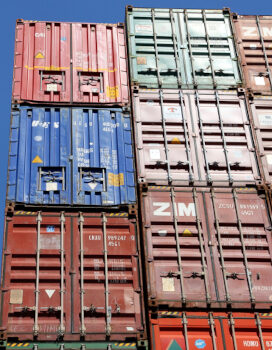The distance sales of goods concern the supply of goods to a private individual (B2C), where the goods are dispatched or transported from one Member State to another. An example of such situation is the sale of goods from a warehouse located in Poland to a private individual in Germany. The distance sale from Poland is currently taxable in the Member State of dispatch of the goods, unless this sale exceeds the distance sales limit to the country of destination or a declaration to the tax office for voluntary taxation in that country was submitted. These rules will change in 2021.
The Ministry of Finance announced the introduction of the first VAT simplification package – SLIM VAT (simple, local and modern). The planned changes concern four areas: invoicing, export, exchange rates, financial benefits. Entrepreneurs should already be informed about the changes and their consequences for their business.
Since 1 July 2020, new rules on chain transaction taxation have been in force in Poland in connection with Council Directive (EU) 2018/1910 of 4 December 2018. The new rules are aimed at harmonising the settlement of chain transactions across the EU.
On 1st July, the regulations implementing the provisions of the EU Directive 2018/1910 (the so-called quick fixes package) concerning, among others, the sale of goods using the call-of-stock procedure entered into force. The mentioned directive unified the regulations of EU countries, among other things, with regard to the rules of taxation of supply of goods to other EU countries. Thanks to the new regulations, companies moving products from one EU country to another for later sale will avoid the obligation to additionally register as VAT payers in the country of destination of goods.
The transfer pricing regulations in force since January 2019 have introduced numerous changes in this respect, such as for example:
- new documentation thresholds,
- the obligation for related entities to submit information on transfer prices TPR-C (legal persons) or TPR-P (natural persons) to the Head of the National Fiscal Administration,
- an obligation to make a statement confirming that the transfer pricing documentation has been prepared and that the transactions are carried out on arm’s length principle.
From 1 July 2020 VAT on the import of goods to Poland can be settled directly in the tax declaration. Previously, this required a special permit. The aim of the amendment is to improve the competitiveness of Polish ports, which until now have been losing the battle for the customer with i.a. German and Dutch ports. In these countries, the possibility of non-cash settlement of imports for all taxpayers has been long provided for. The new rules for settlement of the VAT will avoid freezing of funds and will have a positive impact on the financial liquidity of companies.
In connection with the SARS-CoV-2 pandemic, many companies are confronted with problems such as reduced income, production downtime, delays in the supply of materials and raw materials, insolvency of contractors, etc.
In practice, this may lead to situations where the supply chain in transactions with related parties has to be reorganised due to the temporary closure of the plant, lack of staff, the need for longer storage of goods due to lack of transport capacity, etc.
On 23 April 2020, on the pages of the Government Legislation Centre a draft regulation of the Minister of Finance amending the regulation on the exclusion or limitation of the application of Article 26, paragraph 2e of the Corporate Income Tax Act was published. The draft provides for another, already fourth postponement of the entry into force of the new withholding tax collection mechanism, this time to 31 December 2020.
Have you been punished for irregularities in VAT settlements with a mandate in Poland? Even if you accept this fine, failure to complete the necessary formalities on time may expose you to further problems.
Do you sell goods or services in Poland and have not yet registered for VAT in Poland? Or maybe you make purchases in Poland and have not deducted the tax? Do not hesitate!
An entity conducting VAT-taxed activity in Poland shall report it in advance. However, failure to make such a notification on time does not release you from the obligation to submit tax returns and settle the VAT.










